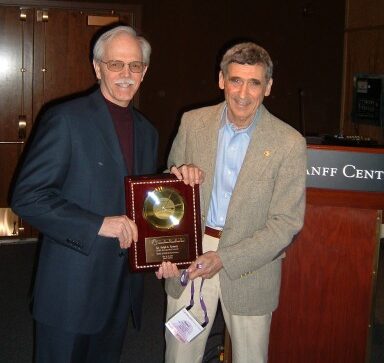Ralph E. Gomory
Title of Presentation: The New World of International Trade
CORS/INFORMS Joint International Meeting
Banff, Canada
May 16-19, 2004
Abstract:
International trade has changed profoundly in the 200 years since the enormously influential David Ricardo described it. Both trade volumes and the variety of goods traded have increased enormously. Trade advantages based on climate or natural resources still exist and Ricardo’s famous model of England making wool and trading with Portugal for wine is still taught to students, but more dominant today are trade advantages that can be acquired.
Do acquired increases in the abilities of trading partners to deliver all sorts of goods or services drive down home country wages? Do home country consumers benefit when products or services that were once made at home become available more cheaply or in better quality from abroad through locating plants abroad or through off shoring? How do these conflicting consequences balance out? What is the net effect on a country=s overall prosperity or on the prosperity of the world as a whole? Finally, do the methods of Operations Research have anything to offer in these areas?
This talk will be about what is known about these questions and also about what is not known.
Bio
Ralph E. Gomory has been President of the Alfred P. Sloan Foundation since June 1989.
Dr. Gomory received his B.A. from Williams College in 1950, studied at Cambridge University and received his Ph.D. in mathematics from Princeton University in 1954. He served in the U.S. Navy from 1954 to 1957.
Dr. Gomory was Higgins Lecturer and Assistant Professor at Princeton University, 1957-59. During this period he invented the first integer programming algorithm. He joined the Research Division of IBM in 1959, was named IBM Fellow in 1964, and became Director of the Mathematical Sciences Department in 1965 while continuing his research in mathematical programming. In 1970 he became IBM Director of Research with line responsibility for IBM’s Research Division. Under his leadership the Research division made major contributions to the computer industry, such as the invention of the Relational data base, and also won two Nobel Prizes. Dr. Gomory became an IBM Vice President in 1973 and Senior Vice President in 1985. In 1986 he became IBM Senior Vice President for Science and Technology. In 1989 he retired from IBM and became President of the Alfred P. Sloan Foundation.
He has served in many capacities in academic, industrial and governmental organizations, and is a member of the National Academy of Science, the National Academy of Engineering, and the American Philosophical Society. He was elected to the Councils of the three societies. He was a Trustee of Hampshire College from 1977-1986 and of Princeton University from 1985-1989. He served on the President’s Council of Advisors on Science and Technology (PCAST) from 1984 to 1992, and is presently a member of PCAST, and of COSEPUP, the National Academies’ Committee on Science, Engineering and Public Policy.
He has been awarded seven honorary degrees and many prizes including the Lanchester Prize in 1963, the John von Neumann Theory Prize in 1984, the IEEE Engineering Leadership Recognition Award in 1988, the National Medal of Science awarded by the President in 1988, the Arthur M. Bueche Award of the National Academy of Engineering in 1993, the Heinz Award for Technology, the Economy and Employment in 1998, the Madison Medal Award of Princeton University in 1999, and the Sheffield Fellowship Award of the Yale University Faculty of Engineering in 2000.
Dr. Gomory is a director of The Washington Post Company, Lexmark International, Inc., and of two small start-up companies. He was named one of America’s ten best directors by Director’s Alert magazine in 2000.
Dr. Gomory’s research interests include integer and linear programming, nonlinear differential equations, and computers. In recent years, while continuing his mathematical research, he has written on the nature of technology and product development, industrial competitiveness, technological change, and on economic models involving economies of scale. He is the author of a recent MIT Press book (with Professor William J. Baumol) on conflicts in international trade.

